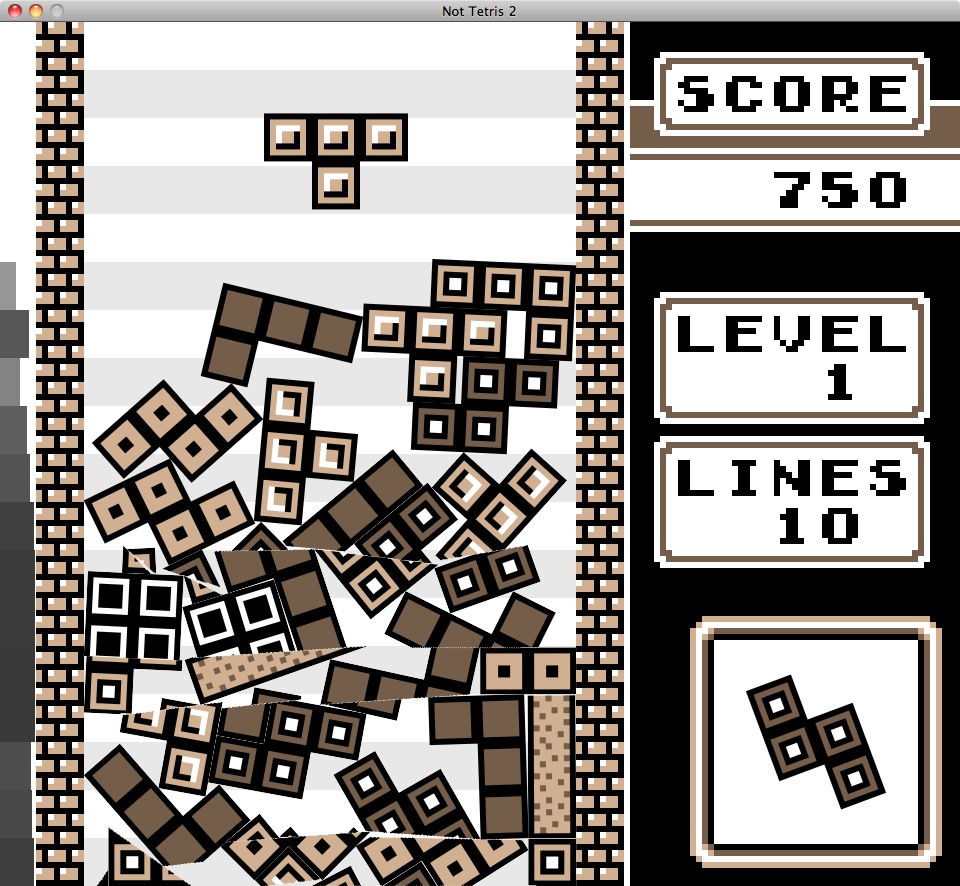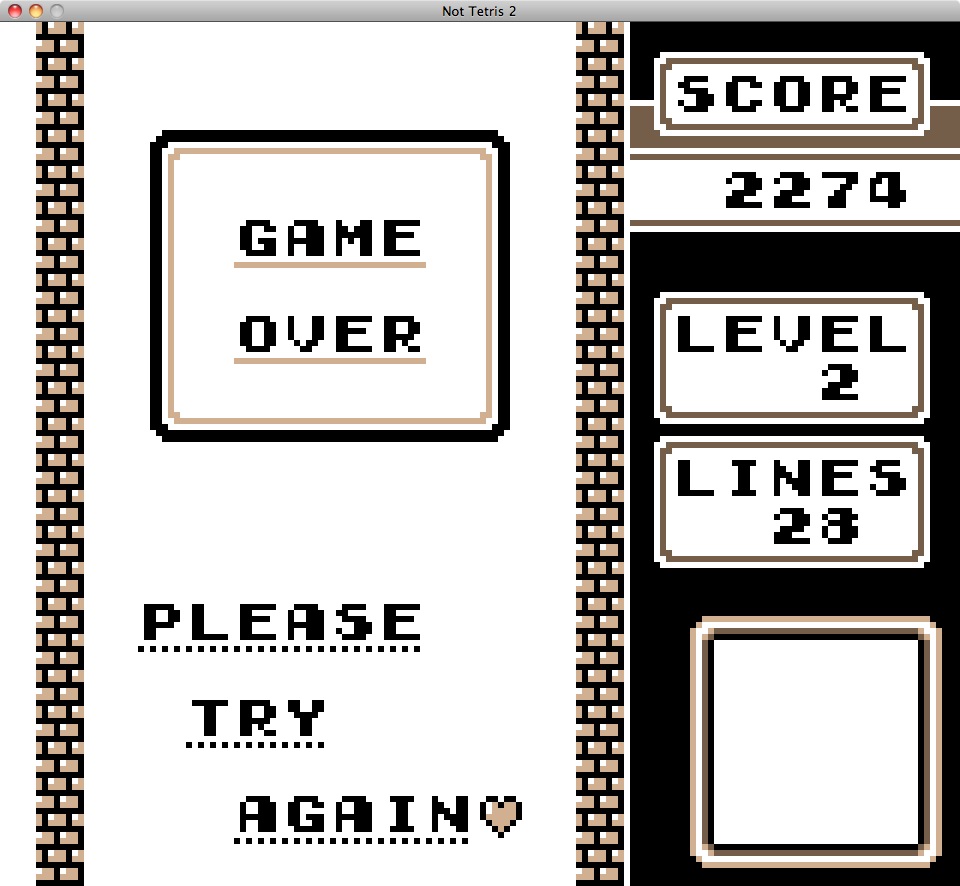More Tetris and Not Tetris
| October 29th, 2012 6:33 AM by Ken Gagne | Filed under Game trail, Software showcase; 2 comments. |
Two years ago, I discovered Not Tetris, a physics-based puzzle game inspired by the classic that so addicted the Woz. It was a cute variation on the original, but since the trademark line-clearing mechanic of Tetris was absent, it offered little replay value.
The creatively named sequel, Not Tetris 2, resolves that issue:
Not Tetris 2 is the spiritual successor of the classic Tetris mixed with physics. The result is a fun spinoff in which blocks are no longer bound to the usual grid. Blocks can be rotated and placed at any angle, resulting in a complete mess if not careful. And with the newest cutting edge technology, Not Tetris 2 allows line clears when the lines are sufficiently filled. The old mode is still available for play and is now called Stack.
Stack mode simulates the original Not Tetris, making it obsolete in the face of the sequel. The implementation of the line-clearing function is strange, though. It seems to clear individual lines of pixels, not blocks, and can occur well below where the current piece has been placed, as if the pile were being jostled into completion.

|

|
|
A typical Not Tetris 2 playing field, after some lines have been cleared. |
The results of my first round of Not Tetris 2. |
But it’s still a fun game with all the familiar graphics and tunes, including one I recognized from a Tetris-themed video on the history of the USSR — a popular Russian folk song, perhaps?
Not Tetris 2 is available for Windows, Linux, and OS X, with the separate Löve extension no longer needed for the Windows and Mac versions. The game is courtesy of Maurice Guegan of Stabyourself.net (which describes itself as “Commodore 64 compatible”), creator of the Mario / Portal mashup Mari0.
If you prefer your Tetris a bit more hardcore and unadulterated, check out Ecstasy of Order, a documentary about Tetris champions that I caught at last month’s BostonFIG:
Or, if you want to kick it old school, watch hard floppy drives play the Tetris theme song. (Hey, if they can do Star Wars, why not Tetris?)
It’s good to see a game that’s survived long enough to have had an official Apple II incarnation continue to be enjoyed and innovated!
 These multiplayer online games were often played asynchronously, much like today’s mobile apps such as
These multiplayer online games were often played asynchronously, much like today’s mobile apps such as 






